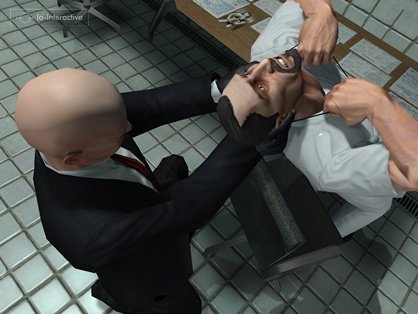Kane & Lynch: How it feels to be critically panned
What's it like when several years of work are met with bad reviews and internet snark?
GR: Do you feel there are any fundamental problems with the way games are reviewed? Is there anything that could be improved on the media side of things to make games reviews fairer?
JPK: I think most reviewers are doing a great job, and there are several who I trust when I buy games.
However there are a few tendencies in most reviews which are problematic. The first is the obvious problem of a grown-up reviewing a game for kids, or a hardcore gamer reviewing a game for the mass market. I think journalists should have the opportunity to see a focus group playing games, especially kids' games. They really do play some games in dramatically different manners than a 25-30 year-old game fanatic.
A second problem can be that just under the journalistic surface, reviews are not only business but also entertainment, and business and entertainment haven’t got a track record of being fair.
I personally like reviews written by (not just approved by) more than one journalist. Not sure it provokes a fairer review, but it’ll carry different opinions at least.
GR: The internet is obviously a powerful tool for building pre-release hype and awareness of a title, but it can also facilitate backlash bandwagons very easily. How positive and negative a factor do you think the internet is overall, and how careful do you feel you have to be about treading a line with it?
JPK: It did feel like K&L received some kind of backlash effect on being hyped a lot before release, but I can’t really judge to be honest.
Weekly digests, tales from the communities you love, and more
To me, the positive sides of the 'net far outweigh the problems. It’s an incredibly important factor for us when we produce games since it gives us some bearing as to what catches peoples' imagination in a given concept. Having forums and fansites also accumulates an enormous amount of knowledge.

Above: Whether it's something new, more K&L or the inevitable next Hitman game, IO say their next project will benefit from this experience
GR: How does negative criticism inform your design decisions on subsequent projects?
JPK: A lot. Unfortunately it affects it more than positive feedback I think, but it can be a great productive process.
It’s worth noticing that negative criticism has to be filtered very carefully before you start to act on it. Which parts should we fix to make the game better for the player and which parts should we fix to get better reviews? They’re not always the same, but unfortunately almost as important.
I think you’ll see IO as a very listening developer in the next releases, but keeping an edge to our products too. Because there’s a danger to reacting to negative criticism primarily; if you want to cook something that nobody dislikes, it’s going to be nobody’s favourite. It won’t be a Surf 'N' Turf, it’ll probably be a loaf of white bread. Very sellable, very boring, but I sure don’t dislike it.
We'll be running more developer responses to this issue if and when we recieve them. Stay tuned.


Six reasons why IO's shooter caused so much controversy

Three rubbish games that would benefit from the Lair treatment

We chronicle the embarrassments that the industry would rather you forgot

Is your voice being heard by the people that make games? We find out...



